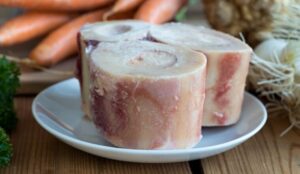 Amanda swallows a handful of supplements reluctantly, wondering if they are actually effective or even safe. The health food store makes recommendations for this or that symptom. Before she knows it she has several to take every day, and is getting sick of it. But she is almost afraid to stop in case they are helping. She knows her diet could be better, and wants to make sure she is getting what she needs.
Amanda swallows a handful of supplements reluctantly, wondering if they are actually effective or even safe. The health food store makes recommendations for this or that symptom. Before she knows it she has several to take every day, and is getting sick of it. But she is almost afraid to stop in case they are helping. She knows her diet could be better, and wants to make sure she is getting what she needs.
Do you ever wonder if the supplements you take are necessary, or maybe causing you even more problems?
Are Dietary Supplements Safe or Effective?
- Not tested for safety
- Not tested for efficacy
- Poor quality control
- What should you do?
A dietary supplement is a preparation intended to supplement the diet and provide nutrients. A supplement may include vitamins and minerals, fiber, fatty acids or amino acids. It may also include hormones and herbs. It may be a concentrate, metabolite, constituent, extract or combination of any of these. They may not be derived from foods at all, but are actually chemicals artificially produced.
Dietary Supplement Safety
Supplements are regulated as foods, not as drugs. Supplements are not tested for safety. A tragic consequence of this was seen when independent laboratory testing found excessive levels of lead in a popular children’s vitamin. Admittedly drugs, both over-the-counter and prescription, are generally far more dangerous. However, supplements may not be benign.
Dietary Supplement Efficacy
Specific supplements are not tested to make sure they are effective. Many studies that show health benefits from specific vitamins were actually done with whole foods and not isolated, fractionated forms of those vitamins. These forms have been shown to not only lack the effectiveness of the foods high in these nutrients, but to actually be harmful in some cases. This industry has become big business, and the drug companies supply most of the supplements repackaged and sold today.
Poor Quality Control of Dietary Supplements
Supplement manufacturers are supposed to meet specifications for identity, purity, strength, and composition. However, enforcement of these guidelines is practically nonexistent. Independent laboratory testing has shown many violations of these quality standards. Blatant substitutions of cheaper ingredients have been found.
What should you do?
I applaud you for wanting more vibrant health. Some people want to make sure they are getting the daily nutrients they need, just in case something is missing from their diet. Others are trying to help specific symptoms that they are having. While these are worthwhile reasons to do something, taking supplements is not the answer.
Learn what optimal nutrition is, and which whole foods supply that nutrition. The Weston A. Price Foundation is a good source for learning this information. When you supply the building blocks that your body needs, it has an amazing ability to heal itself.
Occasionally superfoods that have concentrated amounts of natural vitamins can be helpful. Examples of this are freeze dried liver supplements and high quality Cod Liver Oil. They are naturally high in vitamins A and D, and many other nutrients.
To Your Vibrant Health!
Veronica Tilden, DO
